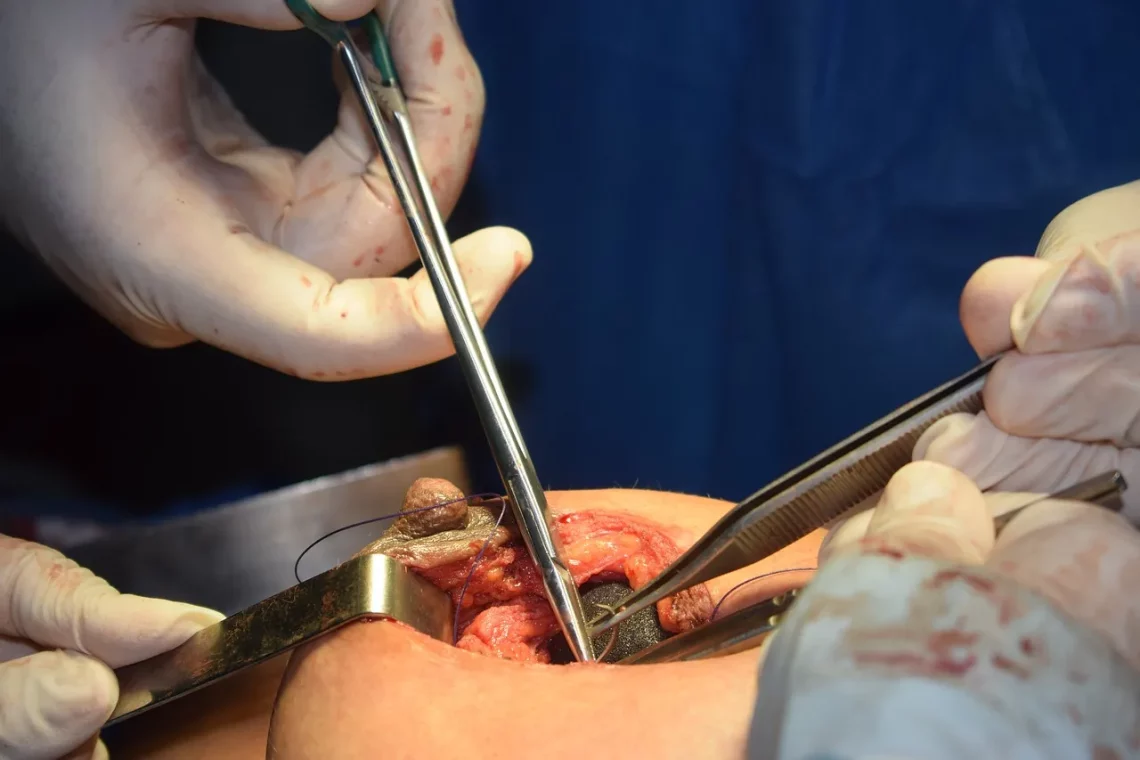
The Rise of the Cellular Surgeon: Revolutionizing Modern Medicine
The landscape of modern medicine is undergoing a significant transformation, driven by advances in technology and a deeper understanding of human biology. Among the most intriguing developments is the emergence of the cellular surgeon, a professional who operates at the intersection of cellular biology and surgical practice. This innovative role is redefining how medical practitioners approach disease treatment, repair, and regeneration.
The cellular surgeon focuses on manipulating cells to heal the body from within, employing techniques such as tissue engineering, regenerative medicine, and minimally invasive procedures. This shift from traditional surgical methods to cellular approaches not only enhances the effectiveness of treatments but also reduces recovery times and improves patient outcomes. As the medical community embraces this revolutionary change, the implications for future healthcare are profound.
In this era of personalized medicine, the ability to tailor treatments based on an individual’s cellular makeup is becoming a reality. The rise of the cellular surgeon reflects a broader trend toward integrating technology and biology, paving the way for innovative therapies that were previously unimaginable. As we explore the various facets of this emerging field, it’s clear that cellular surgery is more than just a passing trend; it is a pivotal element of the future of healthcare.
The Role of Cellular Surgery in Modern Medicine
Cellular surgery represents a paradigm shift in how we approach medical interventions. Traditionally, surgery has focused on removing or repairing damaged tissues and organs. However, cellular surgery goes a step further by aiming to restore function at the cellular level. This approach leverages the body’s innate healing mechanisms, utilizing cells to promote tissue regeneration and repair.
One of the primary applications of cellular surgery is in the treatment of chronic wounds and injuries. For instance, conditions such as diabetic ulcers or non-healing surgical wounds can be particularly challenging to treat. Cellular surgeons can employ techniques such as stem cell therapy, where stem cells are harvested and injected into the affected area to stimulate healing. This not only accelerates recovery but also minimizes complications associated with traditional surgical methods.
Furthermore, cellular surgery plays a crucial role in organ transplantation. The shortage of available organs for transplant is a critical issue in healthcare. Cellular surgeons are exploring ways to create bioengineered organs using the patient’s own cells, significantly reducing the risk of rejection and the need for lifelong immunosuppression. This innovative approach could revolutionize organ transplantation, making it more accessible and successful.
The potential applications of cellular surgery extend beyond wound healing and organ transplantation. For instance, in the field of oncology, cellular surgeons are investigating how to harness the body’s immune cells to fight cancer. By modifying these cells to better recognize and attack cancerous cells, treatments can become more effective and targeted, reducing the side effects associated with conventional chemotherapy.
As this field continues to evolve, the role of the cellular surgeon will likely expand, incorporating advancements in genetic engineering, nanotechnology, and artificial intelligence. The integration of these technologies will enhance the precision and effectiveness of cellular interventions, ultimately improving patient outcomes and quality of life.
Technological Innovations Driving Cellular Surgery
Technological advancements are at the heart of the rise of the cellular surgeon. Innovations in imaging, robotics, and biotechnology are enabling surgeons to perform procedures with unprecedented accuracy and efficiency. These tools not only enhance the surgeon’s capabilities but also improve patient safety and satisfaction.
One of the most significant technological innovations in this field is the development of advanced imaging techniques. High-resolution imaging modalities, such as MRI and CT scans, allow cellular surgeons to visualize the intricate details of tissues at a cellular level. This detailed understanding of the tissue architecture is crucial for planning surgeries and ensuring precise interventions.
Robotic-assisted surgery is another groundbreaking innovation that enhances the capabilities of cellular surgeons. These systems provide surgeons with enhanced dexterity and visualization, allowing for minimally invasive procedures that result in smaller incisions and quicker recovery times. The precision of robotic systems means that cellular surgeons can target specific cells or tissues more effectively, leading to better outcomes.
Biotechnology also plays a vital role in cellular surgery. Innovations in tissue engineering, such as 3D bioprinting, allow surgeons to create complex tissue structures that can be used for transplantation or as models for studying disease. This technology not only facilitates the development of personalized treatment plans but also accelerates the research and development of new therapies.
Moreover, the integration of artificial intelligence (AI) in surgical practice is revolutionizing decision-making processes. AI algorithms can analyze vast amounts of data, helping cellular surgeons make informed decisions based on real-time patient information. This enhances the precision of clinical assessments and treatment recommendations, ultimately leading to better patient outcomes.
As technology continues to advance, the potential for cellular surgery will expand, opening new avenues for treatment and innovation. The collaboration between engineers, biologists, and medical professionals will be essential in driving these advancements, ensuring that the field of cellular surgery continues to evolve and improve.
The Future of Healthcare with Cellular Surgeons
The rise of cellular surgeons is a testament to the ongoing evolution of healthcare. As this field continues to grow, it is reshaping not only surgical practices but also the overall healthcare landscape. The implications for patients, healthcare providers, and the medical industry at large are profound.
One of the most significant impacts of cellular surgery is the shift towards personalized medicine. As surgeons gain a better understanding of individual cellular responses, they can tailor treatments to meet the unique needs of each patient. This personalized approach is expected to enhance treatment efficacy and reduce adverse effects, leading to improved patient satisfaction and outcomes.
Additionally, the integration of cellular surgery into mainstream medical practice is likely to promote a more holistic approach to healthcare. By focusing on cellular health and regeneration, medical professionals can address the root causes of diseases rather than merely treating symptoms. This proactive approach to health management has the potential to reduce the burden of chronic diseases and enhance the overall quality of life for patients.
Furthermore, the rise of cellular surgeons will likely spur increased collaboration among various disciplines within healthcare. The intersection of surgery, biology, engineering, and technology will foster innovation and lead to the development of new treatment modalities. This collaborative environment will be essential for addressing complex health challenges and ensuring that advancements in cellular surgery benefit all patients.
As the healthcare industry continues to embrace these changes, the education and training of future medical professionals will also evolve. Medical schools and training programs will need to incorporate knowledge of cellular biology, regenerative medicine, and advanced technologies to prepare the next generation of surgeons for this new landscape.
In conclusion, the rise of the cellular surgeon represents a significant leap forward in modern medicine. As we move toward a future where cellular interventions become commonplace, the potential for improved patient outcomes and enhanced healthcare systems is immense. The ongoing collaboration between technology and biology will undoubtedly shape the future of healthcare in remarkable ways.
**Disclaimer:** This article is for informational purposes only and does not constitute medical advice. Always consult a qualified healthcare professional for any health-related issues or concerns.




